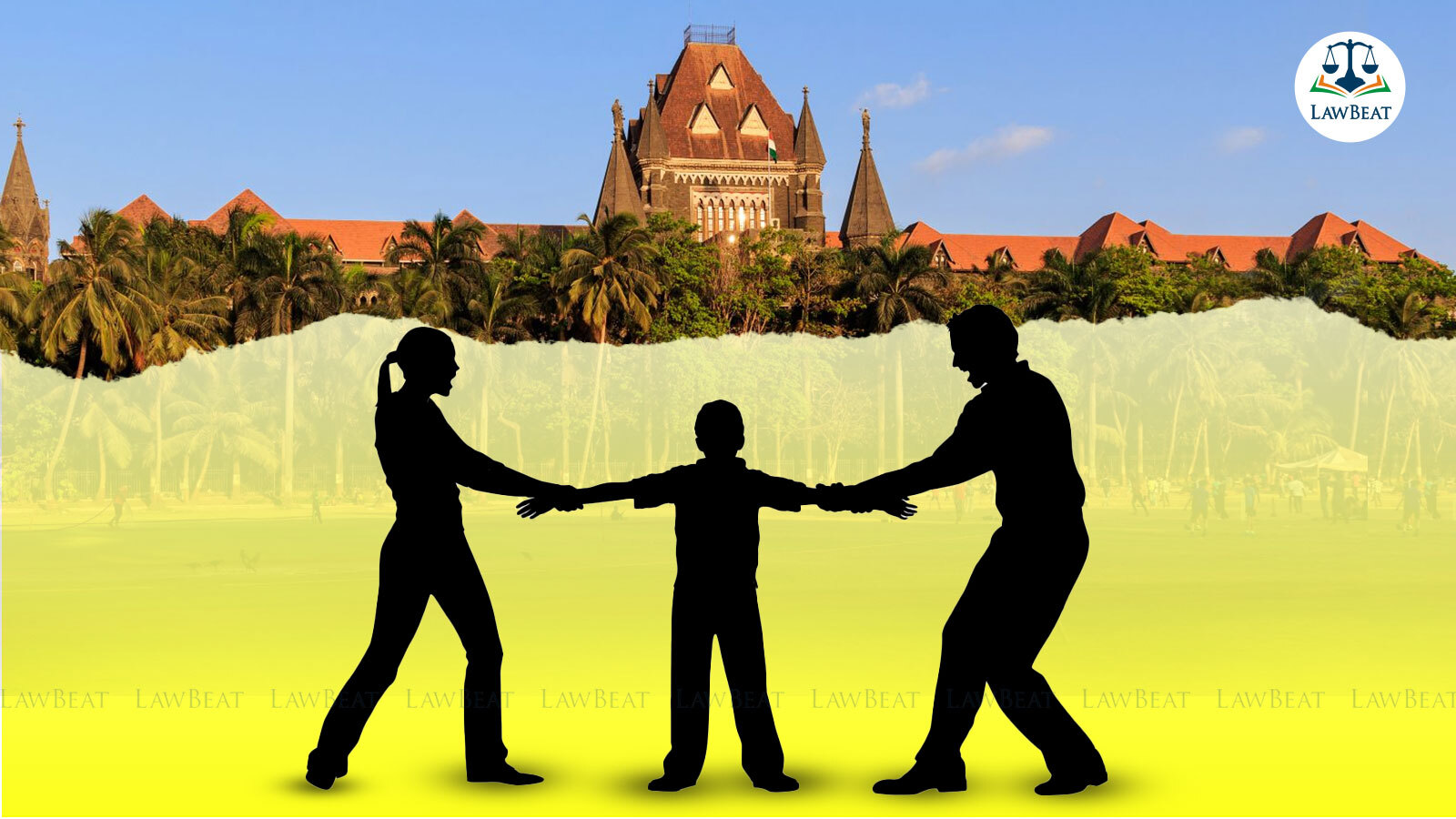


In a recent decision, the Bombay High Court ruled in favor of three couples seeking custody of infants who were allegedly sold to them without proper authorization. The court deemed the orders passed by the Child Welfare Committee (CWC) as illegal and stated that the children did not fall under the category of 'children in need of care and protection'. The court also emphasized the need to follow proper adoption protocols and procedures set by the Central Adoption Resource Authority (CARA). The decision has provided hope for the petitioner couples who have been emotionally attached to the infants in question.
Bombay High Court Upholds Custody of Infants Sold Without Authorization
Background:
The issue of illegal adoption and sale of infants has been a persistent problem in India. In many cases, infants are sold or relinquished to couples without following proper adoption protocols and procedures. This practice is not only illegal but also deprives the infants of their fundamental rights and exposes them to potential exploitation.
Recent High Court Ruling:
In a landmark decision, the Bombay High Court has ruled in favor of three couples who sought custody of infants who were allegedly sold to them without authorization. The court found that the orders passed by the Child Welfare Committee (CWC) deeming the infants as "children in need of care and protection" were illegal. The court emphasized the importance of following proper adoption protocols and procedures set by the Central Adoption Resource Authority (CARA).
Significance of the Ruling:
The decision has significant implications for infant adoption and child welfare in India. It clarifies that the CWC cannot arbitrarily declare infants as "children in need of care and protection" and override the rights of biological parents. It also highlights the need for robust adoption processes and regulations to prevent illegal adoption and protect the rights of both infants and birth parents.
FAQs:
1. What is CARA?
CARA stands for the Central Adoption Resource Authority. It is the nodal agency for adoption in India and is responsible for regulating adoption procedures and ensuring the welfare of adopted children.
2. What are the legal requirements for adoption in India?
Adoption in India is governed by the Juvenile Justice (Care and Protection of Children) Act, 2015, and the CARA Adoption Regulations, 2017. Prospective adoptive parents must meet certain eligibility criteria, obtain clearance from the CWC, and go through a mandatory home study assessment.
3. What are the consequences of illegal adoption?
Illegal adoption is a serious offense punishable by law. It can result in imprisonment, fines, and the nullification of the adoption. Infants who are illegally adopted may also suffer from emotional and psychological trauma.
4. What can be done to prevent illegal adoption?
To prevent illegal adoption, it is crucial to:
5. What are the challenges faced by adopted children?
Adopted children may face various challenges, including:

Amidst criticism over his comments on his interfaith marriage to his Hindu wife, Usha, US Vice President JD Vance reiterates the importance of mutual respect, trust, and communication in their union. While he hopes she may someday embrace his Christian faith, her decision to maintain her beliefs is respected. Despite their differences, the couple has agreed to raise their children in the Christian faith, with Usha supporting them. At a Turning Point USA event, Vance also reaffirmed the couple's balanced approach towards managing their interfaith household.

Three days after TVK leader Vijay met with the family members of the victims of the Karur tragedy, Central Bureau of Investigation (CBI) team led by Superintendent of Police Praveen Kumar visited the rally site in Velusamypuram where the deadly stampede occurred. The officers conducted inquiries with locals and studied the topography of the area, as well as Vijay's travel route. The transfer of the case to the CBI and the re-registration of the FIR remains a secret and its contents have not been made public yet.

Prime Minister Narendra Modi praised the demonstrations by the indigenous dog squad as one of the most admired parts of the Rashtriya Ekta Diwas parade at the Statue of Unity. The squad included breeds like Rampur Hounds and Mudhol Hounds, with Mudhol Hound "Riya" leading the pack. PM Modi also applauded the Assam Police's Motorcycle Daredevil Show and the cultural performances at the parade, which reflected the theme of "Unity in Diversity." The event was attended by five Shaurya Chakra awardees and 16 gallantry medal winners from the CRPF and BSF.

The FBI has announced the arrest of multiple individuals in Michigan who were planning a violent attack over the Halloween weekend. Director Kash Patel praised the vigilance of law enforcement personnel and assured the public that there was no threat to the community. These arrests come after a previous arrest in May of a Michigan man who allegedly planned an attack on a US Army facility on behalf of the Islamic State group. The suspect remains in federal custody and is expected to plead guilty.

The town of Gadwal came together to commemorate the 150th birth anniversary of Sardar Vallabhbhai Patel, India's first Deputy Prime Minister and Home Minister, through a "Run for Unity" program organized by the District Police Department. The event, held on National Unity Day, aimed to spread the message of unity in diversity. Chief guests including MLA Bandla Krishna Mohan Reddy and District Collector B.M. Santhosh emphasized Patel's role in uniting princely states and urged citizens to draw inspiration from his commitment to national integrity.

As part of the 'Sardar 150' initiative, Chief Minister Bhajan Lal Sharma of Rajasthan led a Unity March to pay tribute to Sardar Vallabhbhai Patel and his contribution to India's unity. The march, which saw a large number of participants, journeyed from Gandhi Circle to Amar Jawan Jyoti and highlighted the importance of national unity and prioritizing national interest. The Chief Minister also emphasized the role of Sardar Patel in the integration of princely states into a unified India after Independence.

The FBI has announced the foiling of a potential terrorist attack in Michigan, with multiple suspects arrested for allegedly plotting a violent act over Halloween weekend. FBI Director Kash Patel shared the news on social media, thanking law enforcement for their efforts in preventing the alleged attack. While details about the suspects and the planned attack are still unknown, the FBI has promised to release more information soon.

The government has approved the appointment of Supreme Court judge Justice Surya Kant as the next Chief Justice of India. He will take over from the incumbent CJI, Bhushan R Gavai, in November 2025 and will serve for 14 months. With an impressive career spanning over 37 years, Justice Kant has held various positions in the judiciary and legal service institutions. Let's take a closer look at his journey from a middle-class family in Haryana to the highest judicial post in India.

In a review meeting of the state's religious tourism projects, Chief Minister Mohan Yadav emphasized the need for balanced development in the pilgrimage town of Chitrakoot. He suggested that the Parikrama Path be developed before the construction of the Shri Ram Path Gaman to attract domestic and international tourists. Additionally, he stressed on the importance of crowd management during pilgrim festivals and the development of a wellness center for medical tourism in Chitrakoot.

In a recent social media post, Indian Prime Minister Narendra Modi praised the 'Statue of Unity' as a symbol of tribute to Sardar Patel and a testament to the power of a people's movement. The iconic statue, located at Kevadia in India, has been drawing visitors from all over the country, especially from rural areas, who feel a deep connection with its grandness. PM Modi urges everyone to visit Kevadia and experience the monument for themselves.